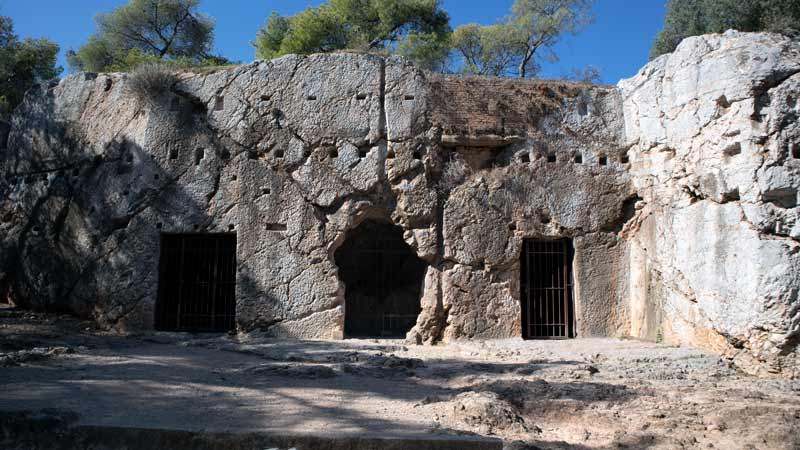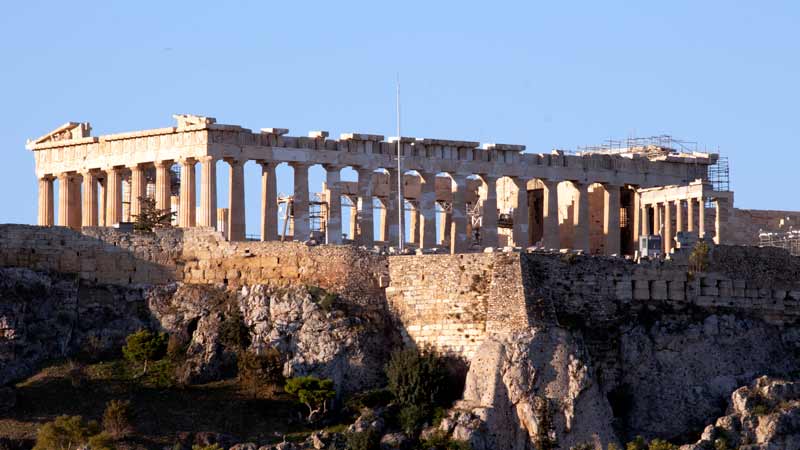Athens, Europe’s oldest capital city, is famous for its history, ancient ruins, Greek culture, and relative affordability. Ancient Athens was, at one time, the centre of the Greek dynasty and one of the most powerful cities in the world. Its history spans back to 3,500 BC and was the centre of much of Greek mythology. The city is said to be named after the Greek goddess Athena. Athens is also thought to be the original centre for democracy, multiple arts, and the home to many of the great philosophers.
Today, Athens is a large, multi-cultural city, teeming with culture and tourism. Athens is the home of many ruins of famous ancient structures, all giving evidence to its historical significance. The city sits on a large plain called the Athens Basin and is surrounded by many mountains. The town is built around some smaller hills, often providing amazing views from rooftop restaurants or park vista points.
“Today, to walk along the pebbled pathways of a traditional Greek mountain village or the marbled streets of an Acropolis is to step back in time”
~ Laura Brooks
Historical Sites
Perhaps the most famous reason to visit Athens, is the numerous ancient ruins, which are scattered around the city, stand as witnesses to the great historical significance of the city. With over twenty of these sites, you will likely have to be selective on which you visit. We were in the city for three days and chose to visit a few of the most significant sites.
If you are interested in the historical details we recommend that you take a guided tour. The guides are very knowledgeable and will point out items of significance at these sites that we would otherwise walk right past. A guided tour will help you better appreciate the depth the ancient Greek culture, their traditions, and the cultural significance of the buildings and monuments.
It is important to plan ahead, particularly during the summer months. The Athens heat can be daunting, especially as you will be outdoors with little shade as you tour the sites. Be sure to carry plenty of water, take a break, and use your sunscreen! Also, Athens entertains a large number of travellers, particularly during the summer months. Arrive early at your preferred sites to avoid the mid-day crowds. A tour guide can also often help you skip the lines as they can be provided with preferential treatment. There are many sites across the city and we had only a few days in Athens so we had to be selective.
The Athens Acropolis – This is the iconic and most important of all of the Athens archaeological sites, which contains a number of historically significant structures. During our visit, we came to understand that an acropolis is a settlement or fortified portion of an Ancient Greek city, intended to provide shelter and safety for the residents. There are actually many Acropolis across the country, but the most famous and historically significant is the Athens Acropolis.
Located above the city, but not on the highest of the city’s hills, the Athens Acropolis has been home to kings, mythical gods, a religious centrepiece, and of course, a tourist attraction for literally 1,000’s of years. The site has been struck by lightning, damaged in wars and rebuilt multiple times over the centuries, leaving it partially destroyed today. Today, the Athen’s Acropolis is a UNESCO World Heritage site visited by millions every year.
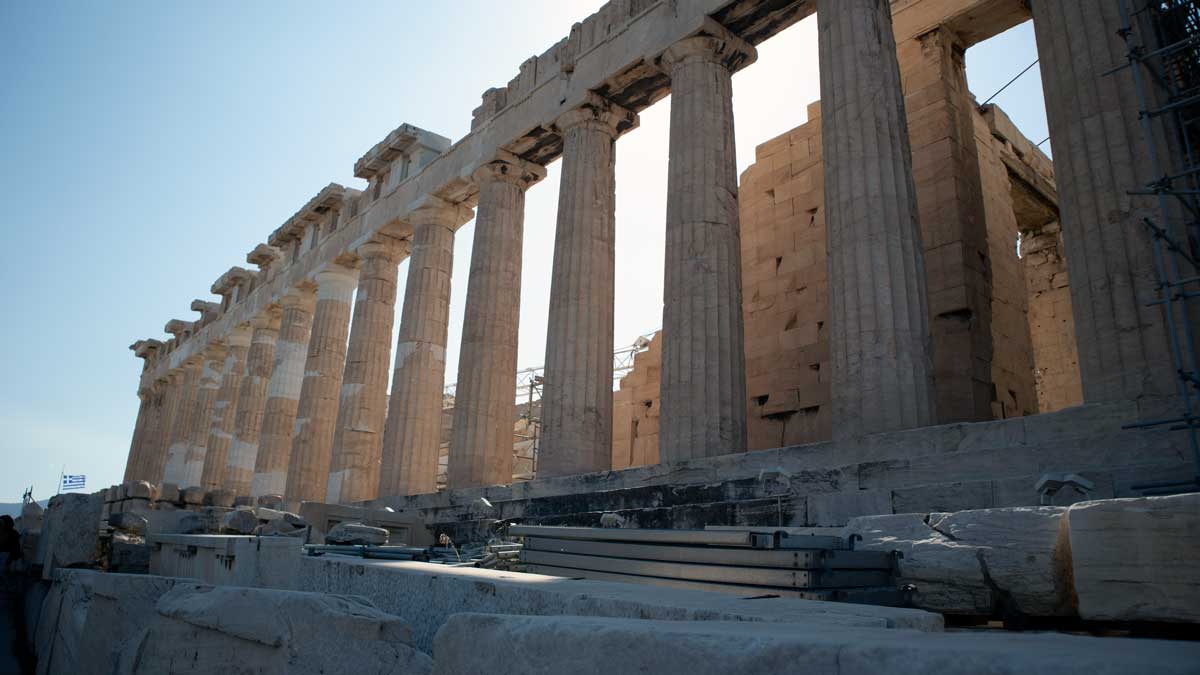
The Parthenon – Constructed during the 5th century BC, the Parthenon, located in the Athenian Acropolis, was a temple constructed to honour the goddess Athena, the city’s namesake. This temple is the centrepiece of the Acropolis, sitting at its highest point. Originally constructed with a full roof and elaborately painted and decorated sculptures, the pillars have survived for 2,000 years, and have served the Greek culture through multiple eras.
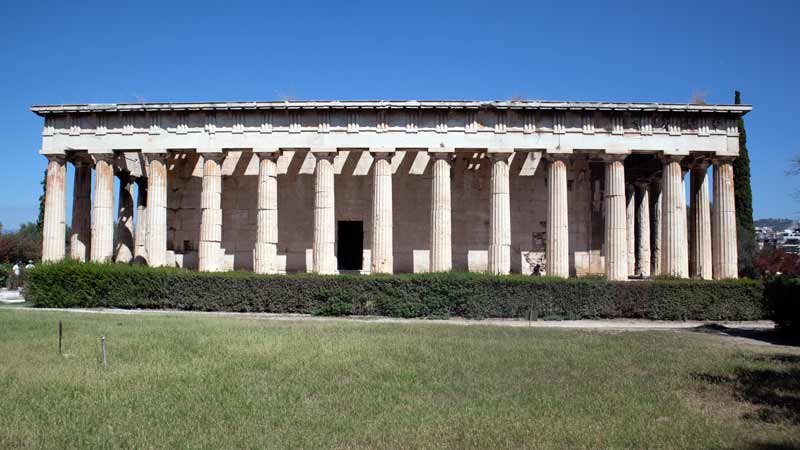
Hadrian’s Library – Built over 100 years BC, the building was constructed to honour Emperor Hadrian. The structure had hundreds of marble columns and elaborately decorated rooms, all constructed with a Roman architectural flair. The building was used to store papyrus books and to display art. Unfortunately, the structure has been severely damaged by wars, invasions, and weather, leaving just sparse ruins of this once magnificent building.
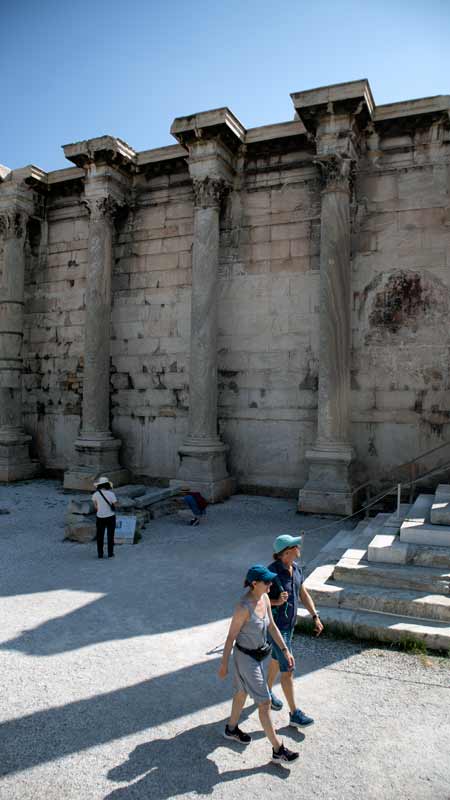
The Temple of Hephaestus – This ancient structure was originally dedicated to Hephaestus, who was the Greek god of fire, and to Athena the goddess of wisdom. Built around 450 BC, the structure is built from marble with 6 impressive columns on the east and west sides and 13 on the north and south. In more recent times the building has been used as a museum and is one of the most popular historical attractions in Athens
Filapappou Hill – Often referred to as the “Hill of the Muses” Filapappou Hill and its monument of Filopappou is a great place for a small hike up the hill and to enjoy some green space in the city. Located just to the southwest of the Acropolis, it was an easy 20-minute walk, which provided great views of the city and a nice respite from the warm weather. The monument at the top of the hill is the tomb of the grandson of the last king of Commagene, Gaius Julius Philopappos, who was considered to be a great benefactor and loved by the community.
WanderingWaze - Athens City Scape
Temple of Athena Nike – Standing at the entrance to the Acropolis, the temple of Athena Nike, is a replacement for the 6th century BC temple that was built from wood and destroyed by fire. The temple was later destroyed by the Ottomans and susequently underwent a painstaking 10-year reconstruction in the 1990s, rebuilding it to exactly duplicate the original building.
The Porch of the Maidens – This famous structure is located at the rear of Erechtheum, the temple dedicated to Athena and Poseidon, the Greek god of the sea. The structure is named for the six pillars constructed in the likeness of young women. Each of these statues stands over seven and a half feet tall, and are exact replicas of the originals five of which are preserved in the Acropolis Museum with the 6th at the British Museum.
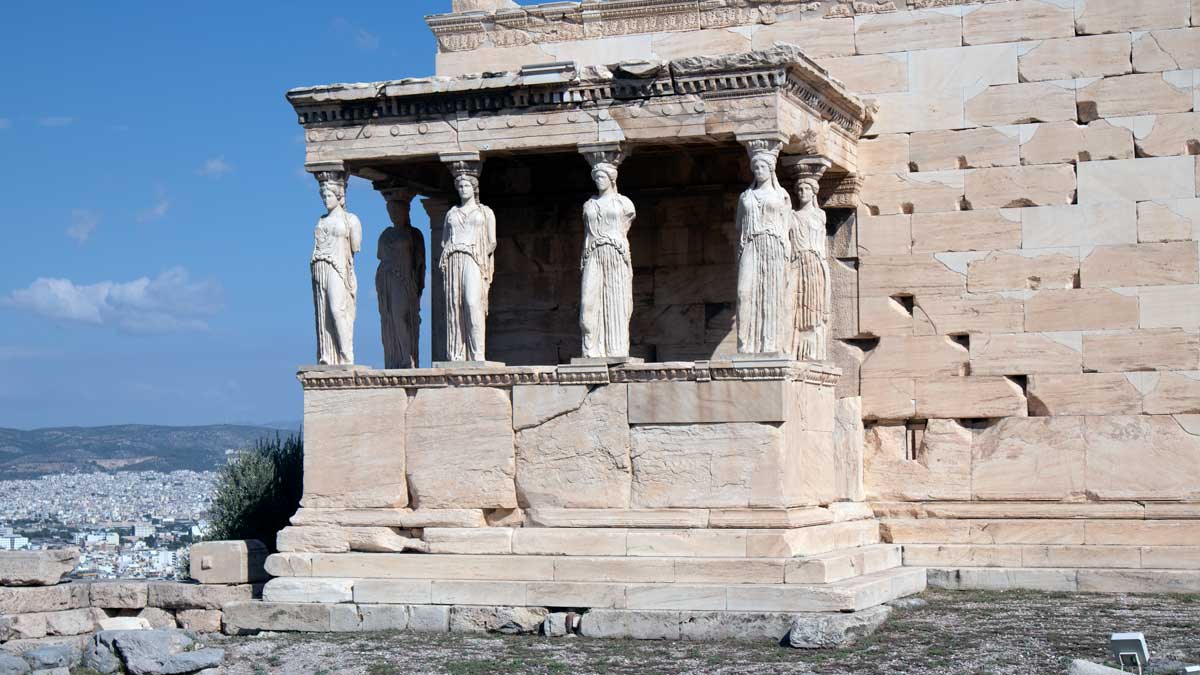
Top 10 Things to Do
1. Check Out the Street Art
The city of Athens is rich with 21st-century street art depicting the angst and emotions of the artists largely during and after the Greek financial crisis. Many of the murals are intended to be protest pieces, speaking out against the policies and actions of the government of the time (2008-2018). You will find these artworks around the city, often popping up unexpectedly on a flat wall or building. They have given Athens the air of an outdoor art gallery and are now considered part of the city’s rich culture.

2. Take a Cooking Class
One of our favourite things to do while traveling, taking a cooking class in Athens will give you experience with traditional Greek cuisine in a way that you might not otherwise be exposed to. We took a class in a rooftop restaurant with two glass walls, providing some amazing views, instruction on traditional Greek dishes, and a very full tummy when we left. We highly recommend this if you are into experiencing a city and culture through its food.
3. Visit the Unique Restaurants
Perhaps the most unusual and unique place to eat in Athens, a visit to the Little Kook restaurant is a highlight of the special restaurant scene in Athens. This café is an interesting combination of Greek cuisine and almost New Orleans’s Marti Graw combined with a Halloween vibe. Situated on a similarly decorated street, this café provides endless visual delights to go along with your meal.
4. Eat at the Street Cafe’s
One of our favourite things to do was to dine at the local street café’s. Most of these have an extensive menu containing the favourite meals of the locals. Generally not expensive, we would watch for the spots that appeared to be most heavily frequented by the locals, and we didn’t have a bad experience. Be sure to sample the traditional Greek salad and the plentiful seafood options on the menu.
5. Check Out the Changing of the Guard
This ceremonial performance occurs every hour at the front of the Parliament building in Athens. These proud members of the Greek military stand guard in perfect stillness until it is time to change. Sunday mornings are the best time to visit as the guards are on duty in full ceremonial dress. This ceremony takes place in front of the Tomb of the Unknown Soldier which stands before the Parliament and the Presidential Mansion.
WanderingWaze - Changing of the Greek Guards in Athens
6. Visit the Churches
Nearly 90% of Greeks identify as being of Greek Orthodox faith. Religion has long been a dominant force in Greek culture. As a result, many elaborate churches have been constructed over the centuries. As you travel through Athens you will find a large number of churches that are open for you to visit and admire. Regardless of your religious beliefs, these churches are some of the most architecturally elaborate buildings in Athens and are worth taking time to visit, As always, remember to be respectful when visiting, maintain a quiet demeanour, men must remove their hats, and refrain from flash photography.
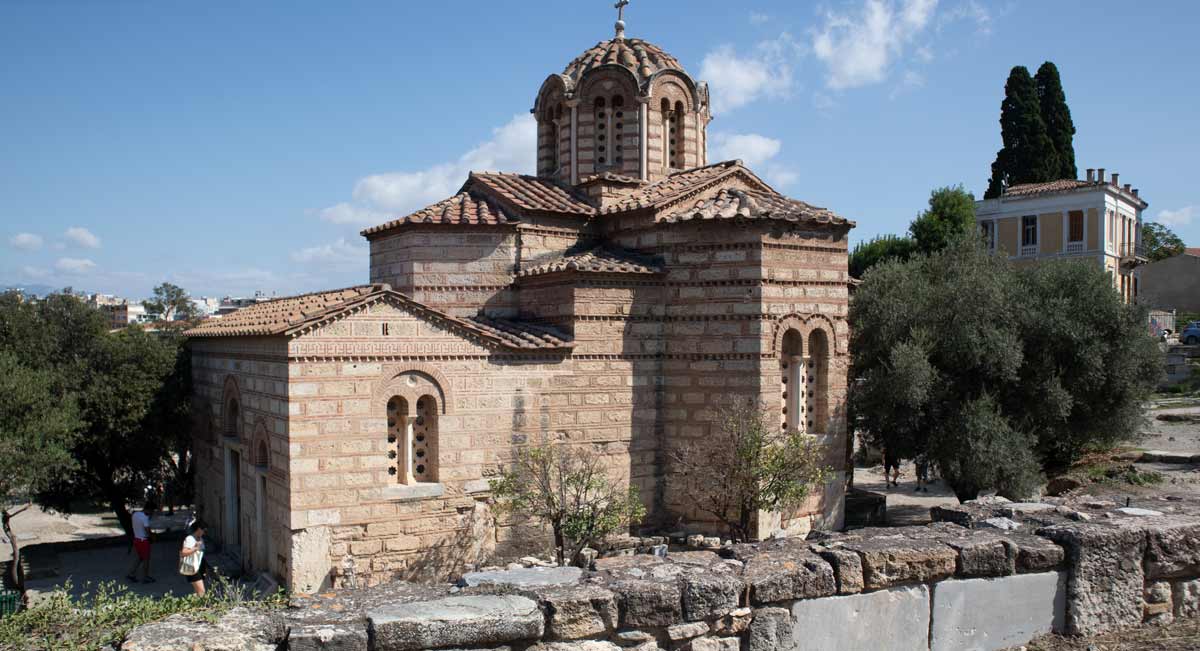
7. Take a Food Tour
A walking food tour is one of the very best ways to experience a city. We took a tour through Athens which brought us to an amazing Greek yogurt stand, a meat market where we had the best souvlaki we’ve ever tasted, and a number of samplings of pastries, cheeses, and other delights. It was a great way to have lunch while discovering hidden places to partake in amazing Greek cuisine.
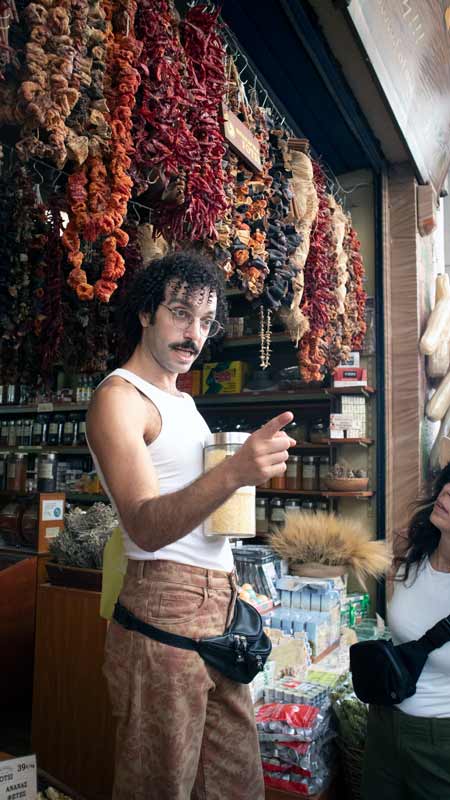
8. People Watch at the City Center
Go to Monastriaki Square at the centre of the city and just sit and watch the people. The energy in the square and the interesting variety of multicultural people going about their daily business is amazing. As a bonus, you can sample from the local shops and restaurants situated around the square. The diversity of the people, businesses, and buildings is perhaps the best in the city.
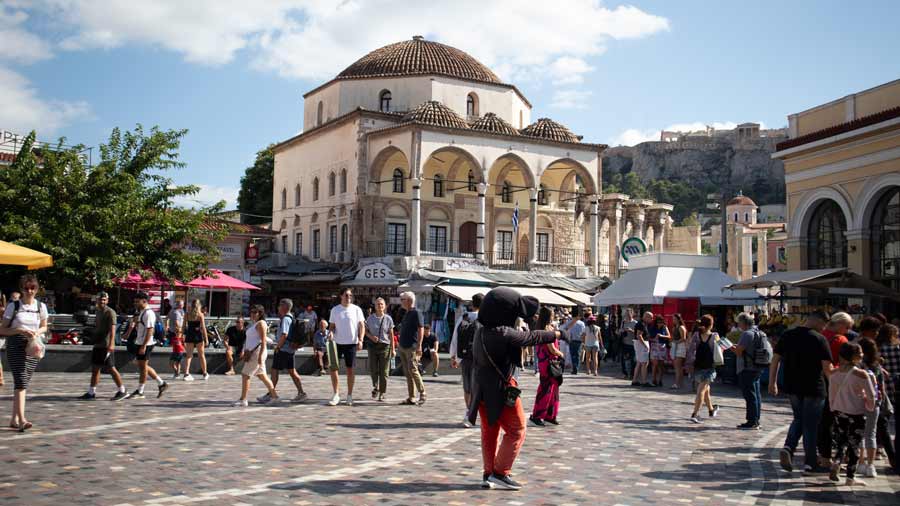
9. Vist the National Archaeological Museum
One of the world’s most significant historical museums, the National Archeological Museum in Athens has an immense collection of ancient artifacts that relate to the country’s extensive history. For a modest admission, you can spend hours wandering and enjoying the exhibits in the museum, gaining a greater appreciation for the depth of Greek cultural history.
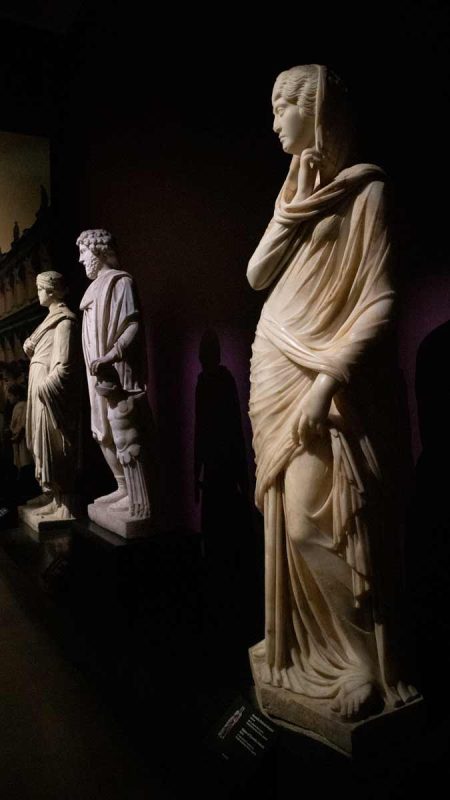
10. Take in a Performance in an Ancient Theatre
While we did not have a chance to experience a performance, the Odeon of Herodes Atticus provides a once-in-a-lifetime opportunity to enjoy a theatrical or cinematic performance under the stars in Athens. Located right next to the Acropolis, this ancient stone theatre has hosted some of the best musical performances since it re-opened about 60 years ago. Be sure to check the schedules and take advantage of this opportunity to view a performance as the Romans once did.
“”Athens, the eye of Greece, mother of arts and eloquence.”
~ John Milton
What to Watch Out For
Travel Safely
Athens is relatively safe for travellers, and considered to be very safe if you observe common sense travel safety, much like you would in any major international city around the world. Do your research, build an itinerary and be sure to let your friends and family know your plans in advance. Here are a few common sense tips that will help you avoid an unpleasant experience while you’re travelling in Athens, or anywhere for that matter.
Keep Your Bags & Belongings Close
Like in many large cities, pickpockets and petty crime can be common. Be sure to carry your belongings in a secure bag, preferably held in front of you to discourage pickpocket attempts.
Don’t Flash Your Wealth
Whether or not you consider yourself wealthy, be sure to not display obvious signs of having a lot of belongings. Expensive jewellery, cameras and similar items can attract unwanted attention. Also, don’t flash large quantities of cash when in the markets or shops. A bit of common sense humility can go a long way to ensuring your safety in any large urban environment.
Cruise Ship Crowds
Many people travel to Greece via cruise ship, which is great if you prefer this way to wander the world. If you are not on a cruise, you may find it advantageous to visit landmarks and do your sightseeing earlier in the day or after the dinner hour, when the crowds are smaller.
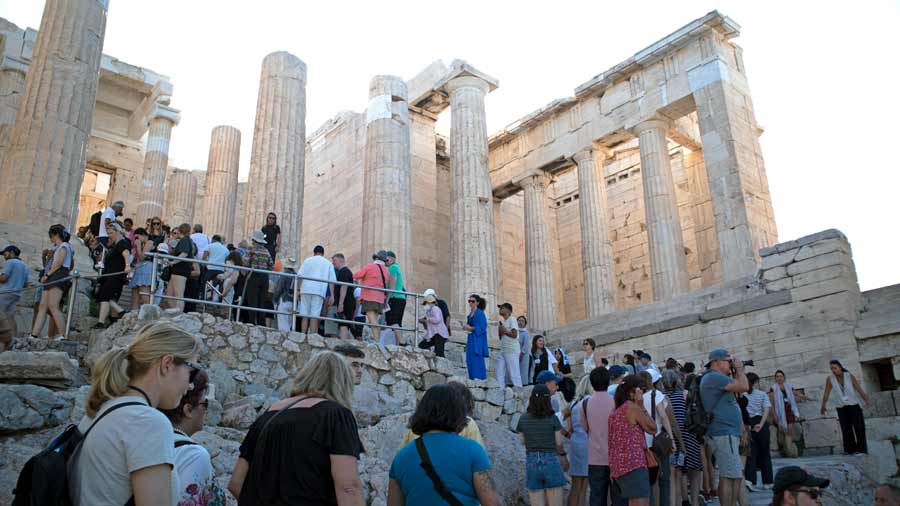
Careful Travelling Alone at Night
Always be very careful about travelling alone at night. If you are out and about after dark, travel in groups and stay in the well-populated areas. Shortcuts, dark alleys, and unpopulated streets can be riskier, particularly for a solo traveller.
Fake Taxis
Watch out for fake taxis. Scammers posing as taxi drivers can often take advantage of travellers and overcharge for trips or worse. Be sure that the vehicle is well marked as an official taxi, that there is a running meter in the car, and that the driver starts the meter right away. If you become concerned about a taxi situation, don’t argue with the driver, just take a picture of the license plate and contact the police
Know Your Numbers
In the unlikely event that you need assistance, call 112 for general emergency response, 100 for the police, and 166 for an ambulance. Hopefully, you will not need this assistance while travelling in Athens, but it’s good to write these numbers down and have them handy. It’s always best to be prepared.
In Summary …
Athens is the epitome of ancient history and an amazing place to visit for its culture and its cuisine. Athens’s rich historical significance, combined with the welcoming vibes that we experienced makes it one of the most interesting and enjoyable cities that we’ve visited. When you visit, which we highly recommend, be sure to allow yourself at least a few days to take in all of the sites, learn about the history, and enjoy the weather and great food!
